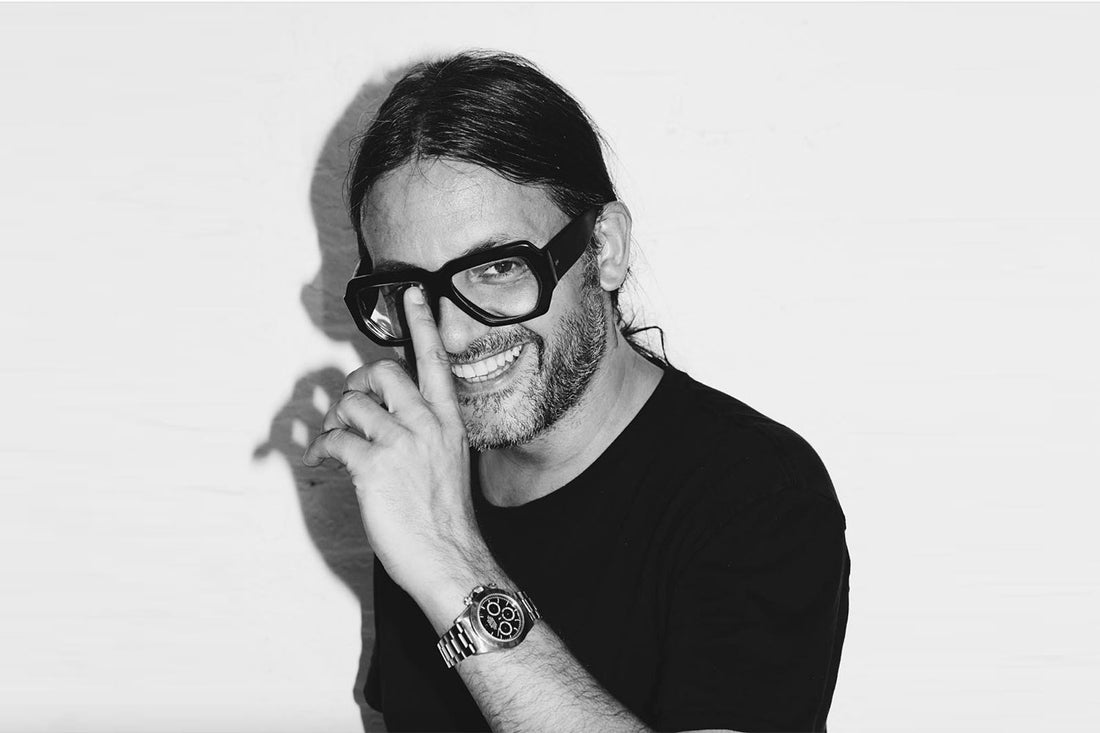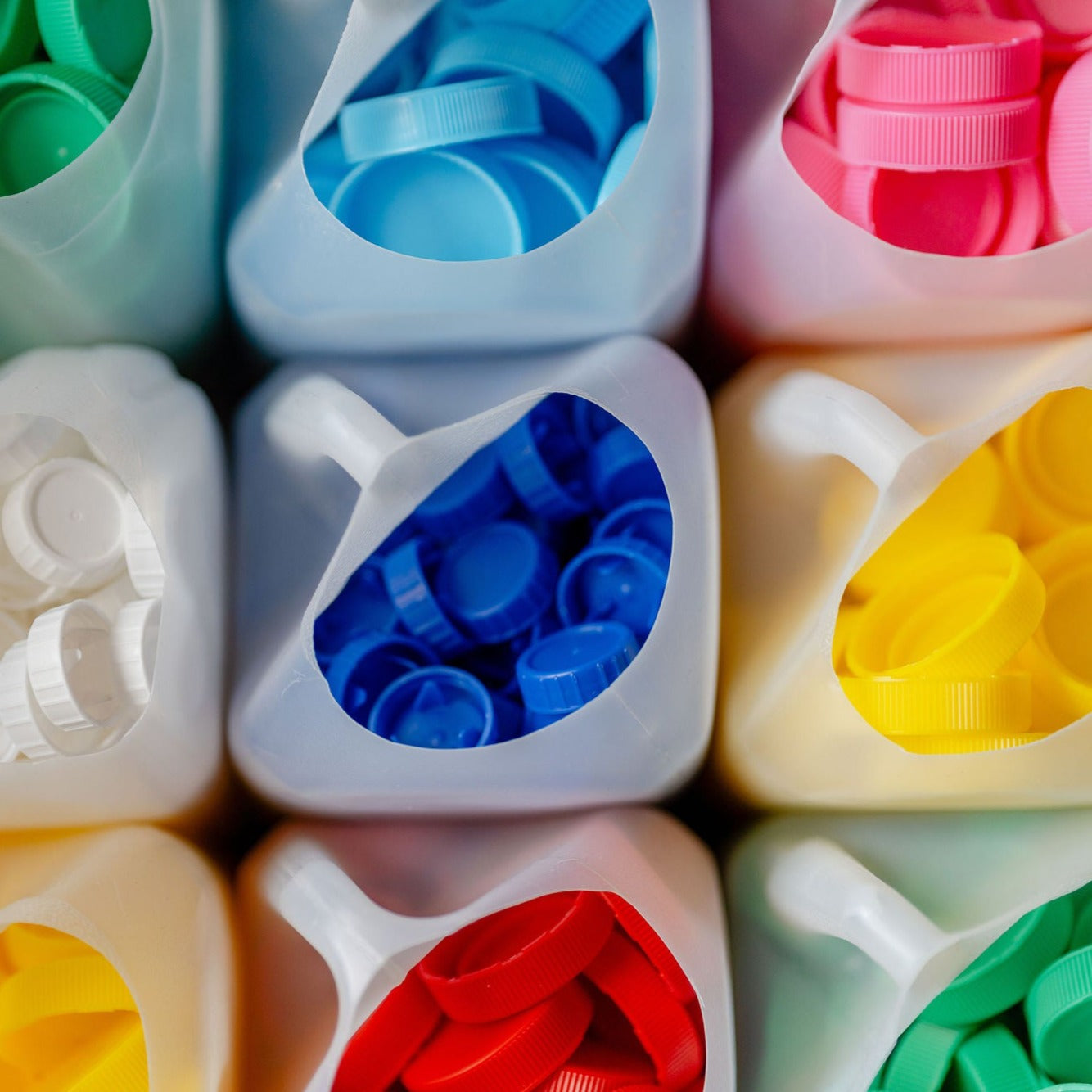
Founder of Parley, Cyrill Gutsch on the solution to plastic pollution

We spoke to the founder of Parley for the Oceans Cyrill Gutsch about Parley's most recent collaboration for World Oceans Day with adidas.
Why did you make the change from the corporate world to build Parley?
I met Captain Paul Watson of Sea Shepard six years ago and he totally changed the way I think about the oceans. I knew they were in trouble, but I didn’t realise how bad things were and how urgent the problem was. He basically told me the oceans are dying, right before our eyes, and if we don’t do something now the entire ocean ecosystem could collapse. Within our lifetimes. As he says, “If the oceans die, we die.”
So pretty much right there I made the decision to do what I could. We changed from a design agency to an environmental organisation pretty much overnight and brought our network with us. I believed then – and I truly believe now – that the creative industry has a huge responsibility to take on the environmental cause, amplify the message and make it a massive, mainstream movement. The ocean is our only client now.
What do you think the solution is to the plastic problem?
The world has already created more than 5 billion tons of plastic waste since the 1950s, and the rate of plastic production is actually set to rise. That’s insane. Only a tiny fraction is recovered and recycled. The rest breaks down into smaller and smaller pieces and ends up in our waterways, and ultimately in our oceans. To visualise how much we’re currently adding to the oceans, imagine a full garbage truck of plastic debris being dumped into the sea every single minute.
When we started Parley and began looking at the problem, we realised that reducing, reusing and recycling isn’t enough. Instead, we devised a strategy we call Parley AIR: Avoid, Intercept, Redesign. First, we’re calling on everyone to avoid plastic wherever possible – whether you’re a shopper or a parent or an industrial designer. We can all choose other materials instead of plastic, right now. Second, we’re working with partners all over the world to intercept plastic. We’re setting up recycling facilities in places they don’t exist, retrieving fishing gear and ‘ghost nets’ that are drifting on the seas killing wildlife, and experimenting with river booms to catch debris as it moves downstream.
Finally, and most importantly, we’re calling for a complete redesign of plastic. Working with scientists, biofabricators and design innovators, we’re pushing for a total Material Revolution. If everyone goes all out, we can replace plastic with new and better materials in the near future. The good news is that we know the scale of the problem. Now it’s time to fix it.
Consumers are now more aware of the impact that they have on the environment, what do you think this means for brands?
It means that brands now need to get onboard, and start actually doing something, or risk going out of business. It’s as simple as that. Things are happening so fast now, and companies that aren’t part of the solution won’t have a future. Because of educated and demanding consumers, there is no more time for reviews or market research or delaying. It’s time to act.
We’re working with forward-thinking companies and rebranding sustainability as ‘Eco-Innovation’. We want to challenge them to create meaningful change throughout their product lines, supply chains and manufacturing – not just easy steps. A lot of our current work is scaling up the market for Parley Ocean Plastic®, a premium material out of plastic waste that ends up in marine environments, in coastal communities, on beaches, in reefs or in deep waters. adidas made 1 million products using it in 2017 and they are making five times more this year. Most of these products are significantly more expensive than comparable items and sell out way faster. The consumer buys these products to make a statement, to be part of the movement, to use their wallet to support us. The material serves as a replacement for virgin plastic as well as a catalyst for awareness and funding of initiatives focused on longer-term, source-based solutions.
For individuals what is the easiest thing they can do to help the environment?
Choose to avoid single-use plastics. Start with one item. Banish plastic bags/bottles/straws/cups from your life. Talk about it. Share your reasons for acting and post your progress on social media with #ParleyAIR.
In your opinion, what is the most exciting thing in the future for the "green world"?
For me, it is the Material Revolution. People all over the world are working on incredible new materials – from big companies in huge labs to smaller startups. Everything from packaging created from mushrooms to clothing grown with bacteria. During the Parley x Biofabricate conference held in New York in December 2017, Parley announced a partnership with the Biofabricate summit and launched the ‘Material Revolution’ to boost the development of new materials that can replace current plastic and drive the success of the third pillar of Parley AIR: Redesign. It’s going to be exciting to watch all these different ideas come to life.


